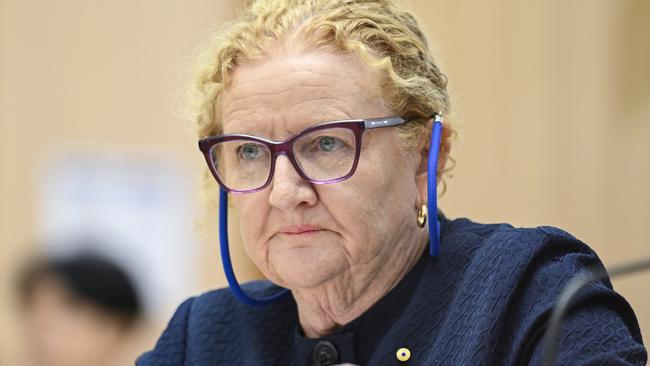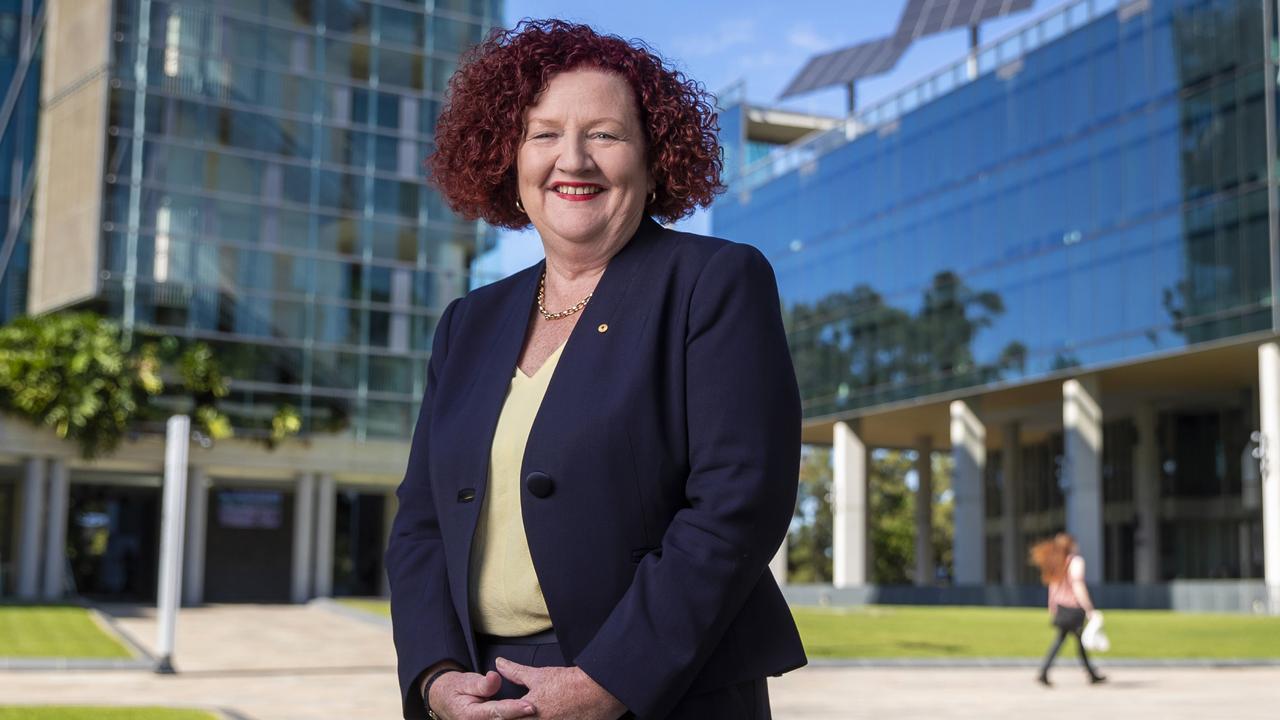Kate Miller-Heidke slams QUT over decision to downgrade arts courses
Kate Miller-Heidke has slammed a Queensland university’s review into its arts degrees saying it showed the prestigious organisation’s “lack of support” for the industry.

Tertiary
Don't miss out on the headlines from Tertiary. Followed categories will be added to My News.
Kate Miller-Heidke has slammed the Queensland University of Technology’s review into its arts degrees saying it showed the prestigious organisation’s “lack of support” for the industry.
The singer, who is one of QUT’s most famous alumni, labelled the controversial review “a cause for concern” and questioned the decision to downgrade courses ahead of the 2032 Games.
“Queensland artists have a national reputation for excellence,” she said.
“The Olympics are coming up – the perfect opportunity to showcase Queensland artists to the world. Is now the time to degrade the quality of talent coming out of Queensland?”
Speaking exclusively to The Courier-Mail, Miller-Heidke said reducing arts degrees to “generalist programs” would lead to less artists and performers entering the industry.
“While VC (Vice Chancellor) pay-packets are going up every year, at the same time many seem to be trying to make cuts to the arts and humanities wherever possible,” she said.
“The role of a performing arts degree should not just be to produce strong financial returns for the university, it should be to produce artists.”
The recommendations released as part of the bombshell review on Thursday saw QUT, one of the only universities to offer a dance major, downscale it to a minor as well as proposed revamps to the acting and drama degrees including name changes and curriculum restructures.
Ms Miller-Heidke said she would be “extremely disappointed” if cuts were made.
“The arts play a crucial role in fostering a sense of togetherness and social cohesion, which is very needed right now,” she said.
“They’re also a huge asset in fostering mental health, particularly among our youth.”
She said the arts sector also had a “massive financial importance”.
“Cuts also demonstrate a perceived lack of importance of the key role the performing arts, and the arts more generally, play in society,” she said.

“The role of a performing arts degree should not just be to produce strong financial returns for the university, it should be to produce artists.”
She said cuts would mean QUT would not be as strong and “won’t be resourced to the level required to properly prepare emerging performing artists”.
She also said cuts would result in a “degradation of culture in Australia” because a strong country is one that values its artists.
“The Griffith Conservatorium taught me to sing, and QUT gave me a career. It’s as simple as that. QUT gave me the resources and the right collaborators to make my first EP, which launched my career nationally,” she said.
“I’m not the only one – there’s also Ball Park Music and Konstantin Kersting, who’s produced a global hit with over 1 billion streams for Tones and I, and many more.”
QUT Vice Chancellor Professor Margaret Sheil said the review endorsed a Bachelor of Creative Arts structure that has a balance of core and disciplinary specific majors and had not proposed a reduction in discipline-specific teaching.
“QUT is proud of its longstanding influence and distinctive identity in performing arts and we were intentional in seeking advice from industry as to how we could preserve this in a sustainable way and respond to the evolving needs of the sector,” she said.
“The recommendations provide a clear pathway forward for QUT in continuing to produce a pipeline of future cultural leaders.”
Prof Sheil said the review had provided guidance for QUT to evolve its arts program to be sustainable, reflect industry needs and to elevate the longstanding influence and distinctive identity we have in the field.
“The recommendations are focused on the future direction of our curriculum and course structure to ensure the QUT performing arts areas can continue to help shape the Australian arts scene for decades to come,” she said.
“QUT acknowledges that the performing arts are a uniquely human endeavour and as a place of higher learning, we will seek to remain at the forefront of fostering the spirit of collective enterprise that is an essential driver of curiosity, imagination and innovation, but also mutual support and cohesion.”
Prof Sheil said the importance of strengthening the performing arts in Queensland would only grow in the coming years with the 2032 Olympic and Paralympic Games ahead.
“With the QUT Kelvin Grove campus being the immediate neighbour to the Victoria Park precinct, QUT sees the 2032 Brisbane Olympic and Paralympic Games as a unique opportunity to rapidly advance an unparalleled knowledge corridor and global hub of innovation in the heart of Brisbane that will provide broad opportunities for research, teaching and learning, as well as student experiences.”
“The performing arts will be key to promoting Queensland’s unique cultural identity to the world, driving economic growth, expanding tourism and broadening community engagement.”
“At a time where there are significant funding pressures on the tertiary sector, QUT is committed to revitalising the performing arts areas, improving its real-world focus to meet industry needs in a sustainable way.”



